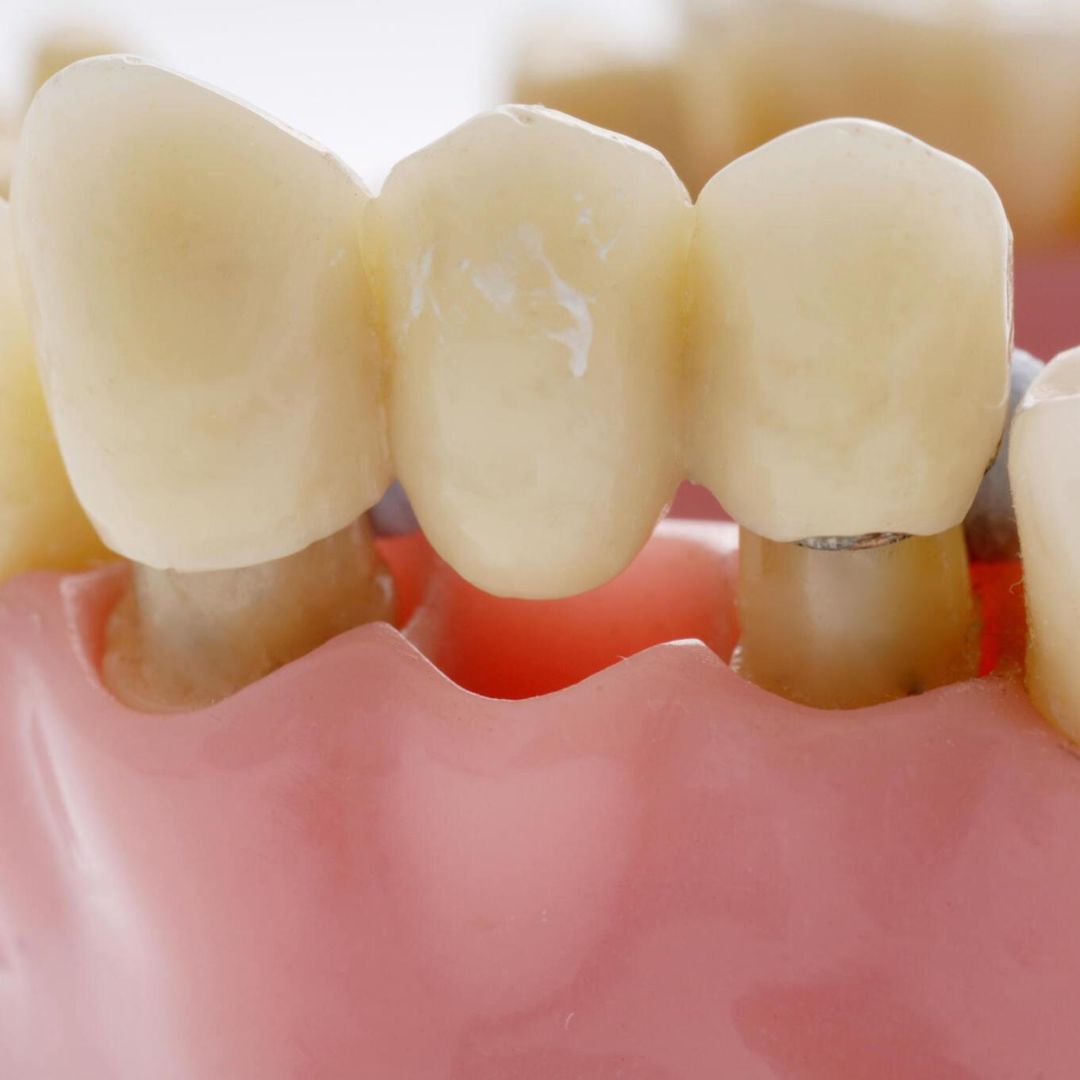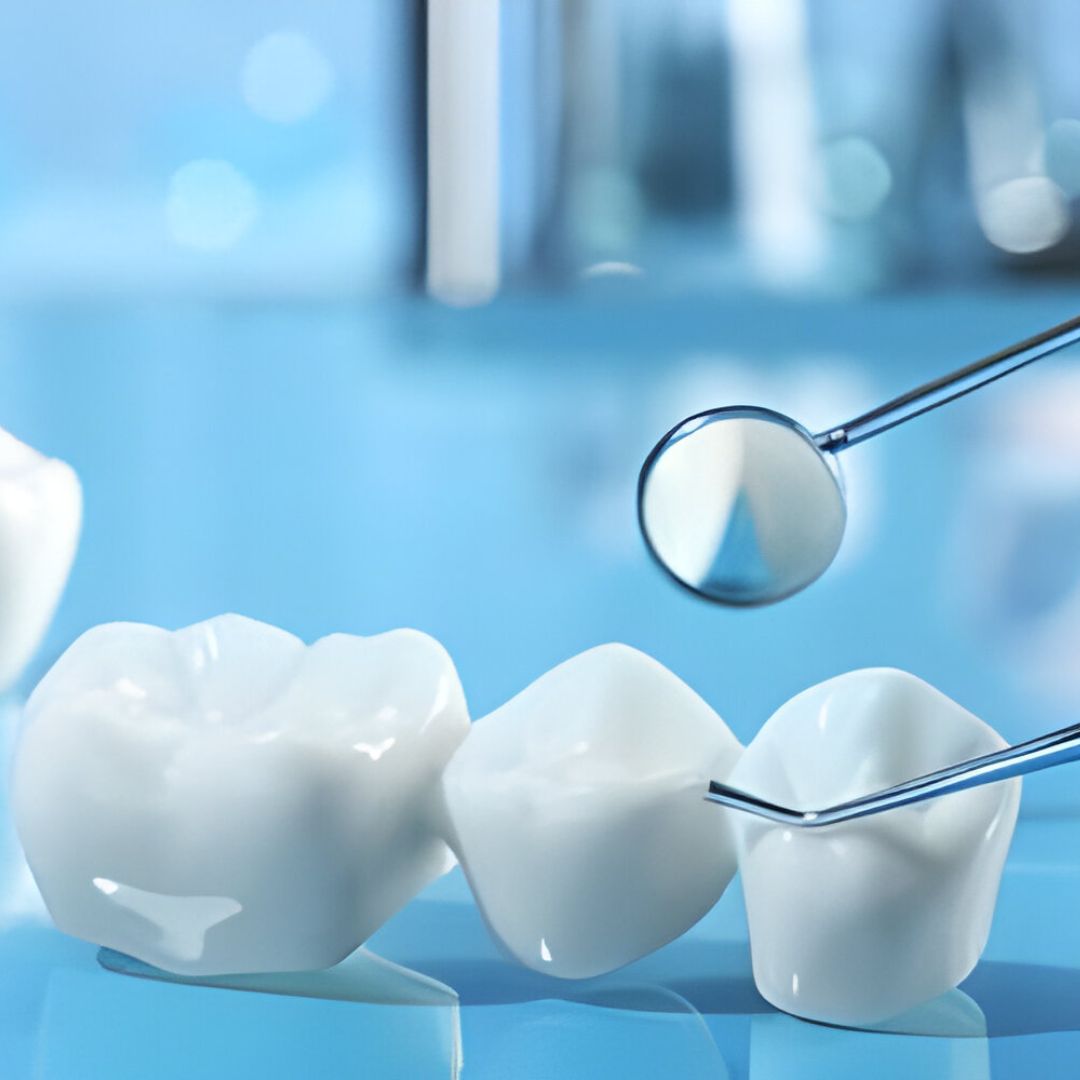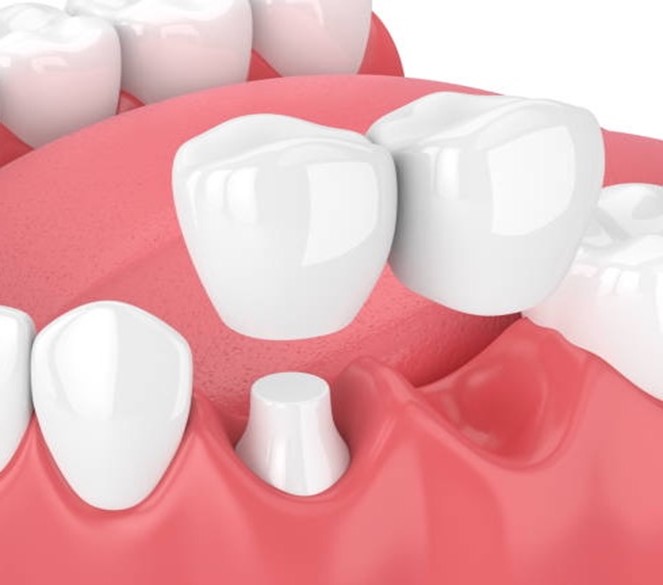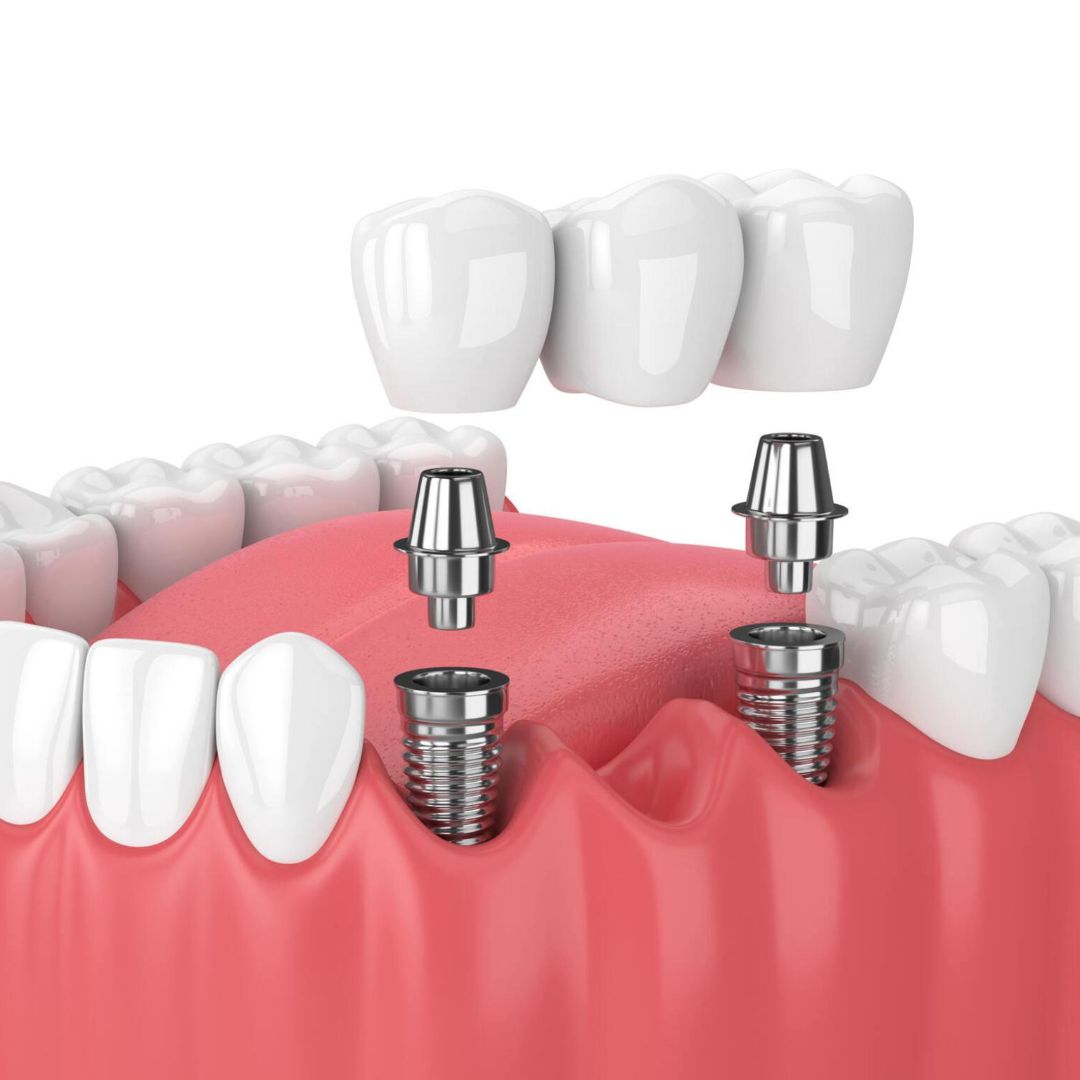Benefits of Dental Bridges
Here are just a few of the many benefits of getting dental bridges in Grande Prairie:
- You will restore your natural look and smile.
- You will restore your ability to speak normally.
- You will restore your ability to chew normally.
- Your facial structure will be maintained by preventing bone loss.
- Adjacent teeth won’t move into the open space, preventing other dental complications.
Of course, it is important to keep in mind that this treatment may not be the best for everyone; your requirements and the state of your smile will need to be assessed by a dentist near you before any official work can be done.
Dental Bridge Treatment
A dental bridge is used when patients have healthy teeth sitting on either side of a missing tooth or teeth. If you’re looking for dental bridges near you, it’s important to understand the general steps involved in the process, which are outlined below:
- The two healthy teeth are filed down to prepare them for the bridge.
- If your teeth don’t have the necessary support, a dental implant will be the first step.
- A model of your teeth is made from impressions.
- A custom-made artificial tooth or teeth is made with crowns for your healthy teeth. This will be made as a single piece and is the actual bridge.
- A temporary bridge structure is provided to protect the two exposed teeth.
- The temporary restoration is removed and replaced with a permanent one.
Types of Dental Bridges
You acquire one of four types of dental bridges in Grande Prairie: traditional, cantilever, Maryland, and implant-supported. A description of each one is provided below:
- Traditional dental bridges are when a manufactured tooth is held in place by a crown on each side of the bridge tooth. This is commonly recommended when healthy teeth can support the bridge tooth.
- Cantilever dental bridges follows the same principle as the traditional bridge, but the bridge tooth is held in place by only one crown adhered to one abutment tooth.
- Maryland dental bridges follow the same process as the traditional bridge, with the extra step of employing metal or porcelain on the abutment teeth to support the bridge. This method is only used when healthy teeth can support the bridge.
- Implant-supported dental bridges are used when the support teeth are either not healthy enough or don’t have the necessary root structure to support a bridge. In this instance, an implant is first placed on one or both sides of the bridge and allowed to heal and gain the necessary strength to support the bridge. Then, the bridge is placed. This process is the longest as it will require time for the implant to bond to the bone sufficiently to support the bridge.
Caring for Your Dental Bridge
To maintain your bridge and keep both it and the rest of your mouth healthy, regular dental care is important. Cleaning your teeth two times every day and swishing with antiseptic mouthwash will help prevent gum disease and tooth decay. You will want to ask your dentist or hygienist for specific details on how to do this with the bridge.
Risks with Dental Bridges
While greatly helpful, there are some factors that need to be weighed when considering getting bridges. These include:
- Damage to the teeth next to the bridge can weaken the bridge.
- If the bridge does not fit well, it can trap bacteria, which, in turn, can result in decay and other complications.
- They can change your teeth’s structure and bite.
- If the teeth they are attached to are not strong enough, the bridge will collapse.
- The teeth they are attached to can become weakened by the extra stress and may need to be replaced by implants.
- Bridges, like crowns, will normally last from 5 to 15 years.
Come Visit Our Dental Practice
Dental bridges near you can be a reliable tool to regain the function of your smile. If you are missing a tooth and want it to be replaced to keep your mouth and jaw from experiencing structural changes, you should consider a dental implant or an implant-supported bridge. Please give us a call at Cobblestone Dental at (780) 833-8898 to schedule your appointment.
We look forward to seeing you!




